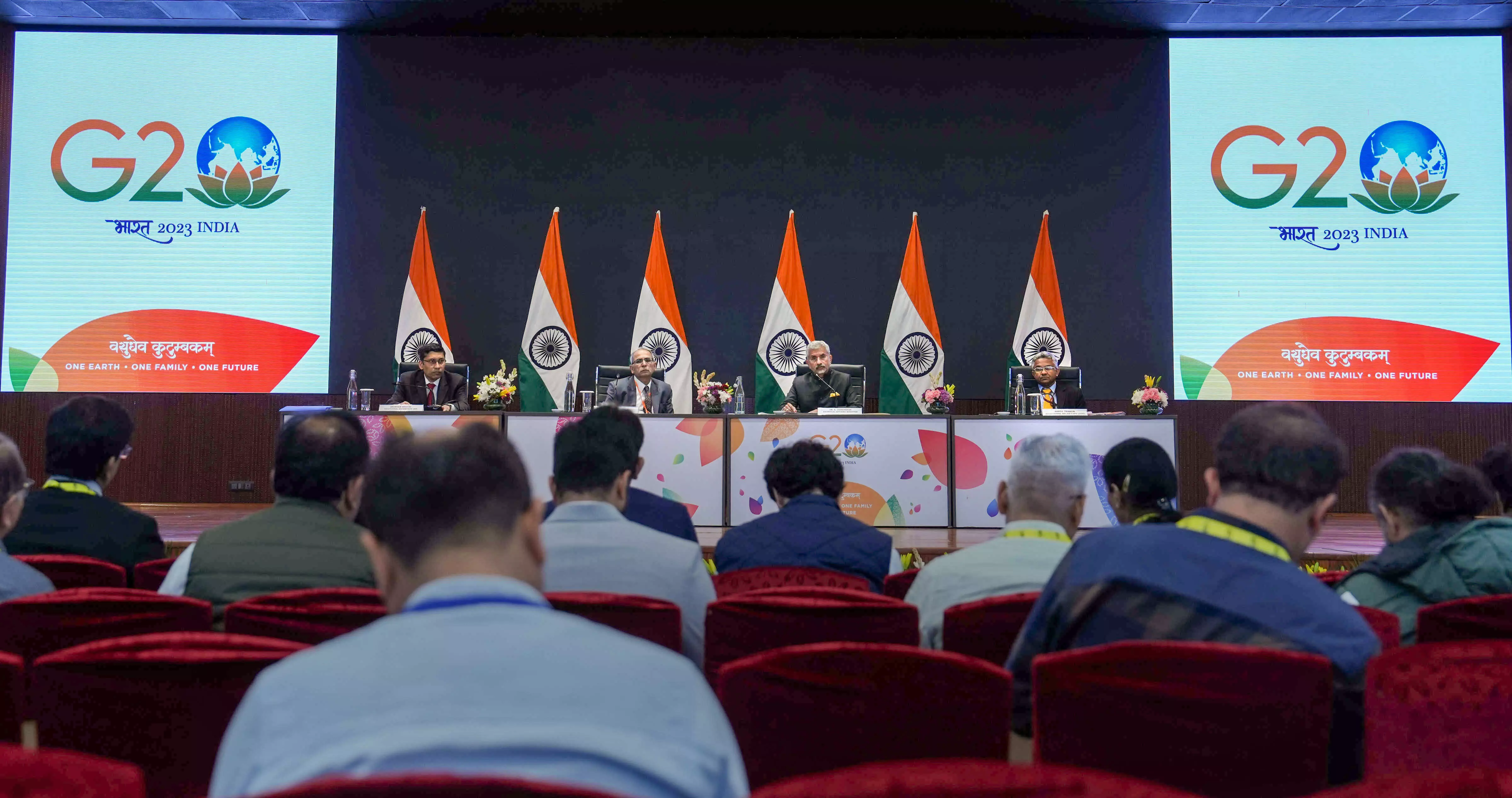Between a rock and a hard place

It has to be admitted at the outset that no country in the world is as well-placed as India to bring Russia and the West to the discussion table. India’s G20 presidency managed to bring Sergei Lavrov, Antony Blinken and Qin Gang — foreign minister equivalents of Russia, the US and China respectively — under one roof. But thanks to their polar divisions, a joint communique still eluded India’s Chair, the second time in a week. It might be unwise to expect things to go hunky dowry in a fluke of the moment. The sharp polarisation between the West and Russia will require consistent, meaningful dialogue. The fact that India’s Chair managed to bring the rivals to the discussion table, even if it was a heated one, could well be a beginning! India’s External Affairs Minister S Jaishankar noted that agreement on “95 per cent in terms of paragraph” was reached in the outcome document. Members came on the same page on the issues related to debt, finance, food, fuel, health, climate etc. What stalled the joint communique were two paragraphs that talked about condemning Russian aggression in Ukraine and the breach of humanitarian principles. As it turned out, the G20 ministerial meeting served as a platform for bitter exchanges between geopolitical rivals, but both parties were courteous to India. US Secretary of State Antony Blinken lashed out at China and Russia, terming them to be exceptional ‘holdouts’ amid the broad consensus on the Russia-Ukraine war. He, however, supported India’s statement that the Chair’s summary was a product of consensus on various issues. Russia’s foreign minister Sergei Lavrov apologised to the Indian Chair “for the improper behaviour of some Western delegations that turned the work on the G20 agenda into a farce.” Though the foreign ministers of G20 nations have agreed to a variety of economic and related issues facing the Global South, it is evidently clear that the same issues have been relegated to a secondary status. Kind words towards India notwithstanding, the mutual bitterness between the West and Russia may dampen the lustre of the G20 Summit, to be held in September this year. A precursor to this was the refusal of Japanese and South Korean foreign ministers to participate in the G20 ministerial meeting — on whatever grounds, under whichever pretexts. Earlier, Japan, the Chair of G7, had raised doubts over the potential of G20 “to engage in constructive discussion” in the wake of the disorder caused by the Russia-Ukraine war. It is needless to say that India’s stated ‘neutrality’ might be coming in the way of the perceived credibility of its G20 chairmanship. While the tone of many Ukraine sympathisers is hushed, the gesture of some is quite telling. Is it a case that under the template of neutrality, India’s inability to hold a mirror against Russia has been manifested? There could be no clear answers to it because it is a sovereign right of each nation to focus on its national interests. What has come in India’s way, however, is its position as the G20 president which, the West thinks, can be leveraged to influence Russia. Apart from the questions of ethics, there could be other diplomatic considerations as well. It can be argued that India’s resistance to condemn Russia publicly stems from short-term stability considerations. Russia’s capacity to keep the war going and dominate Ukraine is exhaustive, and so is its ability to favour India with short-term diplomatic gains. In the long run, Russia’s weakening could take it closer to China which may be more than willing to leverage the situation to its own advantage. However, it must also be noted that Russia has been one of its most trusted allies of India for decades, which might be preventing India from taking a firm stand against the country. It is, again, a matter of debate whether the consideration of friendship should deter India from calling the war a ‘war’. India, as the G20 president, is caught in an uneasy situation. The responsibility of ending a year-old war is thrust upon its shoulders. It is seemingly impossible to reconcile the West and Russia in a short span of time but deserves a sincere try because the war is the root of the global economic slowdown.



